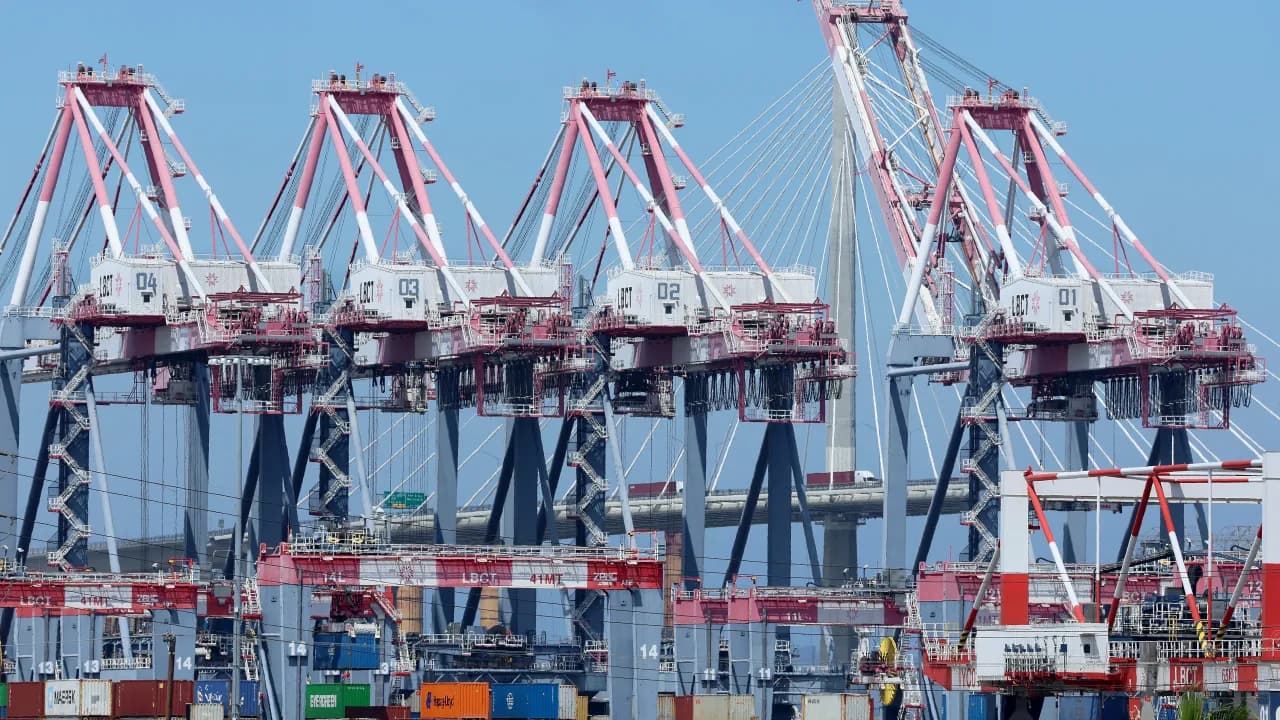The tariff is also indirectly weighing on sentiment, as investors view it as a deterrent to potential rate cuts by the Federal Reserve.
President Donald Trump’s “Liberation Day” tariffs, first announced on April 2 and modified several times with deadline extensions, do more harm to American consumers than the country’s trading partners, an economist warned late Monday.
Peter Schiff, a well-known gold bull and stockbroker, said in a post on X that “We are being taxed, and our freedom to choose what we buy is being abridged.”
He took a potshot at the media for helping Trump “deceive the public by reporting that he is hitting other countries with tariffs.”
“In reality, he’s hitting American consumers who buy imports from those countries with tariffs.”
Although the market tanked in April following the tariff announcement, it has since then clawed back its losses. The S&P 500 index ended Monday’s session at 6,320.94, just shy of its record close of 6,389.77.
The Invesco QQQ Trust (QQQ), an exchange-traded fund (ETF) that tracks the Nasdaq 100 Index, is up 10.6% for the year-to-date period, and the SPDR S&P 500 ETF (SPY) has gained 8.3%.
On Stocktwits, sentiment toward QQQ and SPY ETFs stayed ‘neutral’ by late Monday, but the message volume was at ‘high’ levels.
Other economists also share similar sentiments. Following the U.S.-European Union (EU) deal that was agreed upon in late July, JPMorgan Chief Economist for the euro area said, “Tariffs may at first squeeze the margins of some EU exporters to the U.S., but could eventually fall on U.S. importers and customers.”
“EU export volumes may fall only if U.S. demand weakens or if U.S. producers can boost production to replace imports.”
The tariff is also indirectly weighing on sentiment, as investors view it as a deterrent to potential rate cuts by the Federal Reserve, which has shied away, citing the potential inflationary effects of the levies as one of the reasons.
The Washington D.C.-based research think tank, the Tax Foundation, said in a report released late July that tariffs would impact 75% of food imports to the U.S., with liquors, spirits, baked goods, coffee, fish, and beer being the most severely affected.
According to the Yale Budget Lab’s latest estimates, released earlier this month, the price level in the U.S. is expected to rise by 1.8% due to tariffs in the short term, resulting in an average per-household income loss of $2,400.
On the other hand, Trump and his officials have repeatedly asserted that tariffs have worked for the good of the U.S. Customs and Certain Excise Taxes data released by the Treasury Department showed that tariff revenue climbed from $17.4 billion to $29.6 billion in July, marking the highest monthly total this year, the New York Times reported.
The receipts through July are a staggering $152 billion, nearly double the amount collected for the same period last year.
For updates and corrections, email newsroom[at]stocktwits[dot]com.<
